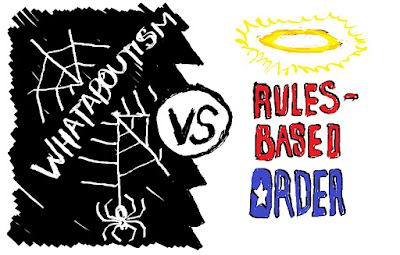There are good reasons to believe the unfairly removed Prime Minister of Pakistan, Imran Khan, will achieve political victory and be able to lead the country again.
#1 All opponents gather together
Because they conspired to create the current government, any blame for shortcomings in government policy will fall on all of Imran Khan's opponents in a single blow to them all, creating the distinct impression that Imran Khan is the only alternative to their rule. This may turn Imran Khan into a far more powerful figure than he already was, as the people will see him as a force equal to all his enemies. The anti-PTI parties may be perceived as one entity and be ineffective at competing with each other as if they have independent visions, because they may all be perceived to share blame for the country's problems equally following Imran Khan's removal. The 'imported' government are simply the same group responsible for decades of mishandling the economy and are likely to only worsen life across the nation, discrediting any claim that they needed to remove Imran Khan to save the economy.
#2 Imran Khan's popularity
Despite efforts to tarnish his character on an international level, Imran Khan has remained popular within Pakistan. Pakistan's people don't seem susceptible to the influence of the international media, which labours to discredit Imran Khan. People get their information from each other, which causes smear campaigns to be less effective against an honest leader. This seriously complicates the efforts of the new authorities, because they desperately needed to perform a character assassination on Imran Khan and seem to be clueless about how to achieve this. Instead, we could see Imran Khan become even more popular.
#3 Reversed US coups are a thing
US coups have been reversed quite effectively in other parts of the world. Foreign propaganda campaigns and repressive rule have proved ineffective against mass movements in countries such as Brazil and Bolivia. In Brazil, former president Lula da Silva was impeached and jailed and his successor Dilma Rousseff faced impeachment as well. However, Lula is now free once again and is making a successful political comeback, being expected to return to power and replace Jair Bolsonaro in the October election. In Bolivia, despite a US-encouraged coup against him that created a floundering puppet regime for a single year, Evo Morales' popular Movement for Socialism returned to power. As such, even if Imran Khan is jailed on some false charge, this will only be a temporary setback for his movement. In such an event, people will contrast his behaviour with his opponents fleeing abroad when under investigation. If he were to stay in Pakistan against all pressure, this could only make him appear to be a more patriotic and righteous person. Despite whatever hardships he and his movement may be put under, his return to power and his reversal of the US-led regime change is an eminently realistic and likely outcome based on precedents in other countries.
#4 US impatience
The US helped Imran Khan's opponents into power with a goal to get specific policies enacted in Islamabad that are against the nation's interests. These policies are actually foolish and unlikely to be implemented even by the usurper government. The hope to separate Pakistan from China in the economic and military spheres is likely to be at the top of the wish list of US diplomats, but will never be implemented as the cooperation of Islamabad and Beijing is likely too advanced at this point. As a result, the US will only increase pressure once again on the current authorities in a vain attempt to get the results they want. This will ultimately empower Imran Khan, who will be in a position to simultaneously show the current authorities as ineffective at maintaining relations with the US, while at the same time being the US's corrupt puppets. The usurping authorities will appear to be corrupt and incompetent even at their one purpose of serving the US's will.
#5 Instability
A lack of acceptance of the perceived usurpers is widespread. The resulting weak mandate to rule will result in an inability to effectively handle or be perceived to handle internal and external security threats. If any kind of violence or terrorism grows, perhaps encouraged by the ongoing political crisis, the dubious legitimacy of the regime itself will be first thing to be blamed for any ineffectiveness on the part of authorities. This will intensify any such crisis, perhaps also causing the Army to lose confidence in this regime and creating the possibility that they will prefer the return of Imran Khan.
With patience, it is likely that Imran Khan and his party will return to power. Bumbling conspirators and corrupt leaders may destroy themselves. They will to fail to satisfy anyone, abroad and at home, and it is possible that conniving elements of the establishment will realise that going against the people's will was impractical and destabilising even for their own interests.


















